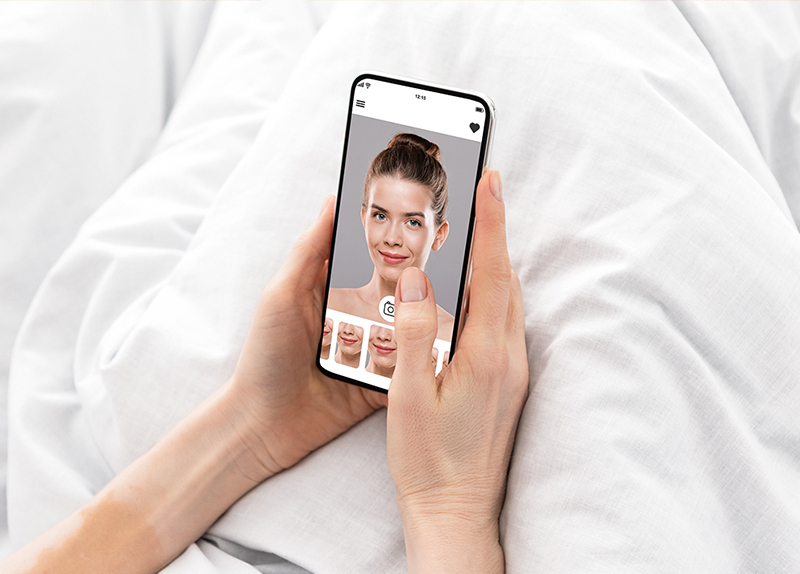 What’s This About?
What’s This About?With beauty filters, users on apps like Snapchat and Instagram can instantly modify their appearance – smoothing skin, slimming noses, enlarging eyes, and more. However, the widespread use of these transformative filters has raised new concerns about their impact on users and societal beauty standards. Lawmakers, psychologists, and influencers are now questioning: should there be regulations around beauty filter usage?
Constructive
Pro Finn
I firmly support regulating beauty filter usage on social media platforms as it could help combat the growing crisis of self-esteem issues. Studies show that beauty filters can negatively impact self-esteem by promoting unrealistic beauty standards. When people constantly see edited, perfected versions of others and themselves, it can foster a sense of inadequacy, dissatisfaction with appearance, and even body dysmorphia. Adolescents and children are especially vulnerable, as they’re still forming their identities and may be more impressionable regarding beauty ideals. Exposure to filtered images online could reinforce a narrow definition of beauty, making it difficult for them to embrace their natural appearance. If we implement age restrictions on certain filters, we could limit exposure among younger users and delay their introduction to filtered, idealized images, helping foster healthier self-images.
Con Alice
Regulating beauty filter usage on social media could infringe on users’ rights to self-expression. Filters allow individuals to experiment with their looks, play with different styles, and express various aspects of their personalities in a fun and empowering way. For many, image manipulation apps offer a harmless way to boost confidence or add a little extra flair to their photos. For those insecure about their appearances, it could be what encourages them to get out more and make friends. Imposing strict regulations could dampen this creativity and source of reassurance and turn social media platforms into overly controlled spaces, diminishing the personal freedom that users enjoy. Furthermore, regulating beauty filters may lead to a slippery slope where other digital alterations or expressions, like augmented reality effects, might also become restricted.
Rebuttal
Pro Finn
I appreciate your concerns, but while heavy-handed regulation could infringe on personal expression, limited, well-defined regulations, such as those focused on transparency or age-based restrictions, might provide a middle ground. For example, Norway has implemented a new law requiring influencers to disclose when an image has been retouched or filtered. This legislation holds celebrities and content creators accountable for disclosing image manipulation on their platforms and adds transparency, encouraging social media users to see themselves and others more authentically. Expanding similar requirements could help social media users distinguish between reality and digitally-created ideals, potentially curtailing a trend called Snapchat or selfie dysmorphia, where people desire to look like their filtered selves in real life, driving some toward cosmetic procedures. Boundaries can encourage a healthier relationship with social media and promote a healthier self-image.
Con Alice
Beauty filters are widely enjoyed by users of all ages and are not inherently harmful. It’s not the technology itself but how individuals perceive and use it that may lead to negative impacts. Instead of regulation, we could focus on educating users on media literacy and healthy social media habits. Parents and educators can guide youth on using these platforms responsibly and fostering self-confidence outside of digital validation. In addition, placing restrictions on filters wouldn’t address the deeper societal issues surrounding beauty standards, which are influenced by much more than social media. Addressing societal beauty pressures requires a cultural shift beyond regulating digital tools. Instead of enforcing controls on personal social media usage, a better approach might be to encourage broader discussions around self-worth, authenticity, and the diverse definitions of beauty.
Judge’s Comments
Thank you both for this insightful debate. The regulation of beauty filters involves balancing mental health and self-esteem considerations with the need for freedom of expression. A combination of limited regulation and education may help protect vulnerable users without stifling creativity and personal choice.